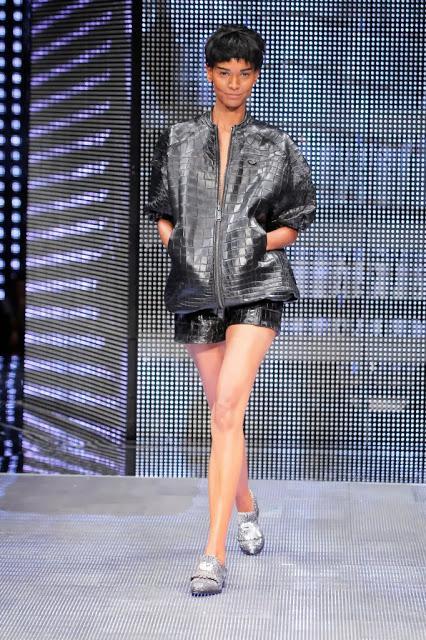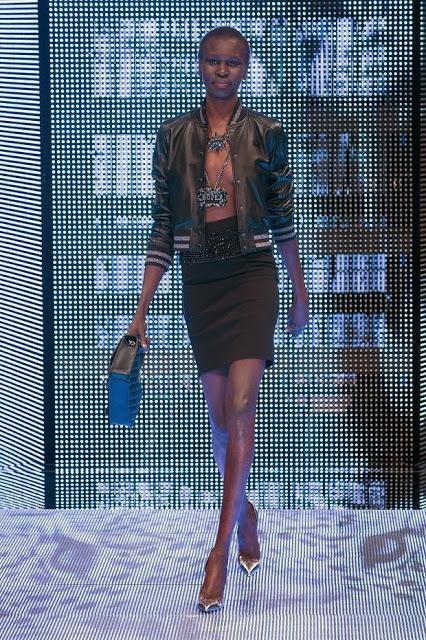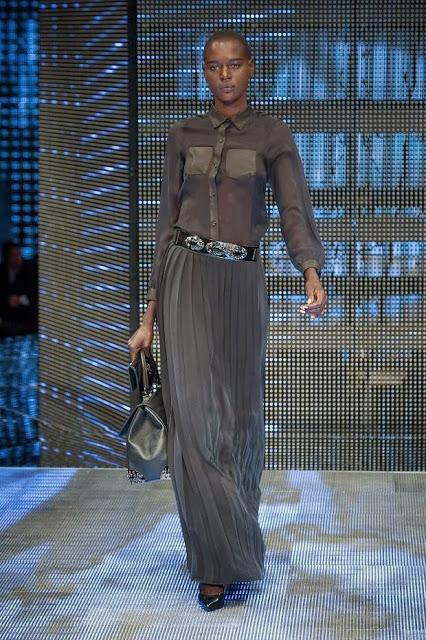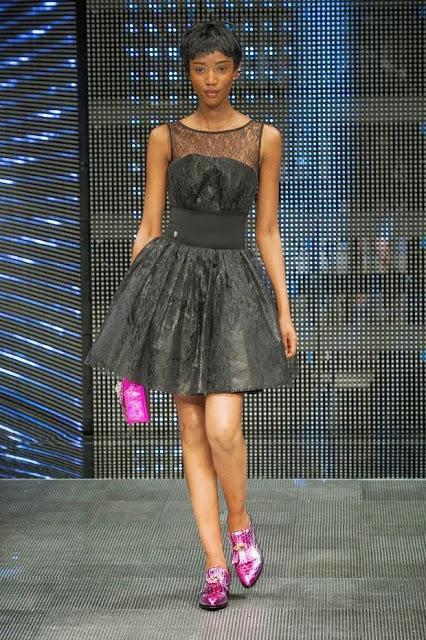Is there racism on the catwalks? That was the question of the incipit of an article I read on the French Fashion Mag. Did you know? At the beginning of September, just before the start of the Fashion Week month, the supermodels Bethann Hardison, Iman and Naomi Campbellsent a letter to the Chambres Syndicales de la Haute Couture of NYC, London, Milan and Paris. In it they expressed their disappointment on not seeing more black models on the catwalks: "Season after season, the maisons employ only one black model or no black model at all […] eventhough it is unintentional, the result is racism."The article though starting with such a polemical question was only a mix of quotes on the matter from people working in the fashion industry. It closed down on Rick Owens show stating that the designer distinguished himself by choosing «majorly black women, really curvy, who danced a kind of haka.»Besides my cringing whilst reading «kind of haka» instead of stomp dancing, this article was frankly a good read to get a grasp of what fashion people thought. So here I picked the quotes that I consider valuable to have a thought on: «We have hundred shows with 22 different nationalities. I still don't get why this should be considered racism […] There was a time in which the most beautiful models were black women […] but times change and there are periods in which european models are prefered» Didier Grumbach, President of the chambre syndicale de Paris «It is exaggerated to speak about racism […] It's just a question of moment […] It was also the same situation few seasons ago regarding asian models»Jean-Jacques Picard, Fashion consultant«Since 2 or 3 seasons, fashion houses are really into asian models, especially chinese one. Magazines and creators want us to send them a lot of chinese models. The reason for it is the opening of China. Before these models only worked in their homeland […] Models have to match with the clothes and the ongoing trend. Minimalism is the major trend lately, and creators just associate it with asian models»Virgine Deren from the Ford Models Europe To me these quotes make sense for the three following reasons:
- Fashion is all about trends, it changes each season hence why as the clothes, the models should embody the mood and the atmosphere creators are looking for.
- Fashion is a business. In order to get the attention of a certain type of consumer you have to show them they fit into your market. And there's no better way to do it than making shows with models coming from the same area as your customer.
- The skin colour is not the only factor to take in account on a catwalk. Employing models coming from different part of the world is also an expression of diversity though you cannot necessarly see it on the models skin. Who would have tell Gisele Bündchen was from Brazil just by looking at her? In brief, there is already diversity in the fashion industry BUT we just can't see it. Nonetheless, it is still true that the fashion industry lacks of black models but it certainly doesn't lack diversity.
From one side you have Rick Owens in NY, a town in which trends are coming and going really fast, everything done there is really à l'avant-garde in terms of fashion and art compared to old european cities like Paris or Milan. This city is bursting with movement, energy and youthfulness. Ellis Island may not exist anymore as the main place in which immigrants arrived believing they would have a better life in this new country, but still NY continue swarming with people coming from all over the world. Despite a History in which slavery, segragation and discrimination were really strong, this city seems to be the cradle of an incredible melting pot hence an incredible mix of culture. Thus, in my opinion, Rick Owens through this show did not only fight racism on the catwalks. I just felt he wanted to fight every type of racism and discrimination and this beyond the sphere of the fashion world.
From another side you have Philipp Plein in Milan, a town known to be one of the most chic in the world. Here also, trends are coming and going really fast but not as rapidly as in NY. Here people are attached to traditions, the italian savoir-faire though this town architecturally is the least italian town of the whole country (that is my personal impression of course). To tell you the truth you have to be Italian to find the italianity of this town. Milan is not at the avant-garde but the town always helds really interesting art exhibitions and cultural events. If this city were a woman she would have been very chic, structured, cultured, and from time to time exuberant. This city, though full of immigrants, there is no melting pot, no mix of culture. Even born there, children of immigrants are still considered wops. There is no story of slavery, segragation and discrimation but still the stranger if not from other european countries is scary. In such a context, I can understand the approach chosen by Philipp Plein.

Liya Kebede

Alek Wek
In all honesty, I wasn't glad when I heard about his show. Positive discriminationis not my cup of tea. And that was this catwalk was about. I wasn't educated in this mindset, I have never been educated feeling I were different from the others because I am black. Of course I had issues at school and in my life in which I experienced racism but never I felt that I had to justify my skin colur because I am just myself. This fact probably explains why I never took part to any association fighting racism but instead would participate to other projects in which I showed interest in other cultures so that they could get interested in mine too (oh Les Goblin you did taught me things!). That is why I was first upset by this catwalk, why should you need such a show to justify the employement of more black models?

Then suddenly I realized that maybe fashion people just like common people lack references about black women, their femininity and beauty. And I am no different than them in that case. I have no references in terms of beauty, style and hairdressing and simply femininity that is properly from Africa. That is how I realized civilizations having an alphabet and a proper writing were able to know their History because they have books, and Africa just doesn't have this. To sum up, I have no fashion references regarding black women because there is no book, no picture, no proper representation. Or to tell the things how they really are: the referenecs I have about black women are either from the United States or either very linked to the colonial History, that is already very biased.That ignorance of mine made me think that it can also be the case of many creators. I mean, it's not such a long time ago that on the catwalks, make up artists didn't know how to properly do their job on dark skin. I mean on some pictures supermodels like Iman, Katoucha Niane or Naomi Campbell looked as if just went out from a tomb. In such a context, my opinion is that people in the fashion industry are right saying that not seeing a lot of black models on the catwalks is due to the trends and a "moment effect", but I am also convinced that it is due to the fact that in the occidental mindset, the black woman isn't yet considered as common as a blonde, brunette or red-haired girl. So for me, more than racism it is ignorance that I see. By saying this I am not thinking in a pejorative way, I just want to point out we just don't know how to deal with this type of beauty.
To conclude this article, I will say that I am still against positive discrimination but I consider Philipp Plein initiative interesting for people to actually really see how black models look and that they can also fit many aesthetic. If he was able to make an entire catwalk only consisting of black models it means that employing more of them is absolutely possible whatever the trends are.
Your opinion about racism on the catwalks? Is it due to our ignorance that we don't see more black models on the catwalks?

